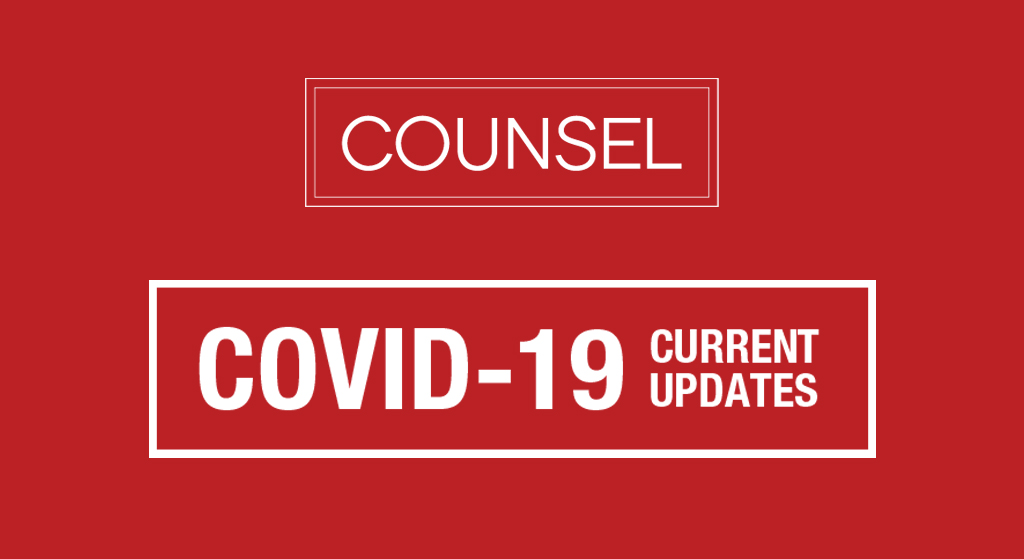The federal government made a major announcement about the federal COVID-19 response today. In summary:
ANNOUNCEMENTS:
- The Prime Minister announced that the 75% wage subsidy will now apply to all sizes of companies, including charities and non-profits, so long as they have experienced a 30% reduction in revenue. The wage subsidy will cover the first $58,700 of a workers salary, for a maximum of $847/week per worker. It will be backdated to March 15 and will last for three months. There does not appear to be a cap on the total amount of the wage subsidy that each organization can benefit from.
ANALYSIS:
- The eligibility criteria for the Canada Wage Subsidy program was adjusted over the weekend after the federal government received feedback from policy experts and stakeholders. Whereas on Friday the government was saying that this policy would only apply to small and medium sized enterprises, it now applies to any organization that has experienced a 30% decline in revenue. This measure is expected to have a major positive impact on the projected rate of unemployment in the coming months by helping organizations keep staff on their payroll. While the Prime Minister would not give the total price tag for the program, if there is no cap on the total amount of the wage subsidy that each organization can benefit from, this is a staggeringly large expenditure. Ministers Ng and Morneau will provide more technical details tomorrow.
- The Prime Minister warned of serious consequences for companies who abuse the Canada Wage Subsidy. Because of the scale and urgency of these programs, upfront verification individual applications will be all but impossible for the CRA. The government will be relying on future audits to catch firms who game the system.
- While some expressed concern over the cost of these spending measures, UBC Economist Kevin Milligan has pointed out that Canada has a huge amount of fiscal firepower for situations like this. He says that if Canada spent a trillion dollars responding to this crisis, that new debt could be serviced by raising the GST by a single point. For context, the federal government lowered GST rates by 2 points between 2006 and 2010.
OTHER NEWS:
- The Hill Times reported this morning that Heritage Minister Gilbeault was preparing a support package targeted at Canadian media.
- On Saturday, the Prime Minister announced that anyone displaying symptoms of COVID-19 will not be allowed to travel domestically by train or airplane, starting at noon today.
- Yesterday, the Prime Minister announced $7.5 million in new support for the Kids Help Phone to hire more councillors and $9 million to the United Way for local organizations that provide services to seniors including health check-ins, filling prescriptions and grocery/meal delivery. The Prime Minister acknowledged the difficulties experienced by the not-for-profit sector and committed to announce further support in the coming days. This comes as a coalition of 200 charities requested $10 billion in stabilization support from the government, a request that may have largely been addressed by today’s wage subsidy announcement.
- Yesterday, the media asked if the federal government planned to send the Canadian Forces into Quebec, where the spike in cases has been most pronounced relative to other provinces. The Prime Minister indicated that the provinces have not asked for the army to respond, but if that changes, the Canadian Armed Forces will be prepared to answer the call. According to Defence Minister Harjit Sajjan, up to 24,000 reserve and regular forces are ready to be mobilized to help with three priorities: slowing the spread with engineering or medical support; helping cities with mitigation efforts; and providing support to vulnerable coastal, northern or Indigenous communities. The military is also focussed on preparation to combat flooding or forest fires if required.
- While the Chief Public Health Officer is pleased with the reduced rate of spread in BC as a positive sign, she is concerned about recent spread in long-term care homes, as well as in remote communities, with the first case registered in the Nunavik region of Northern Quebec. The next week will be crucial for determining if social distancing and self-isolation measures have slowed the spread of the virus. The government is not putting any timeline in place for when the pandemic will end, but has said that restrictions will likely be in place for months.
If you have questions, please reach out directly to a member of our federal team:
Sheamus Murphy – smurphy@counselpa.com (613) 323 7607
Bridget Howe – bhowe@counselpa.com (613) 797 8058
Ben Parsons – bparsons@counselpa.com (613) 323 5226

